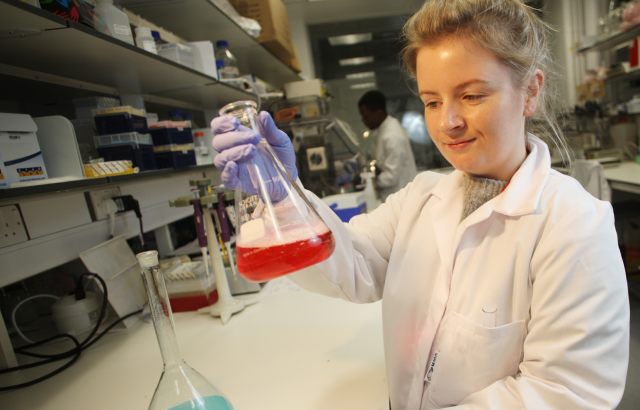
Science

Belfast scientist receives funding for research into how the body can regrow blood vessels

by
Laura Piercy

by
Laura Piercy

A scientist at Queen’s University Belfast is to begin research that will help to bring us a step closer to creating treatments that can restore the body’s ability to grow new blood vessels (angiogenesis) in people with heart and circulatory conditions.

We have awarded a grant of £284,711 to Dr Karla O’Neill for a three-year project to improve our understanding of how stresses associated with heart and circulatory conditions, such as high blood sugar in diabetes, can prevent angiogenesis and how this effect can be reversed.
The findings will help to inform the development of treatments that will aim to undo the damaging effects of heart and circulatory conditions on angiogenesis and boost the body’s ability to grow new blood vessels.
Helping to recover from injury
Being able to grow new blood vessels is essential for our health – it helps our bodies to recover from injury and ensures our tissues receive enough oxygen. Cells called endothelial colony-forming cells (ECFCs), which circulate in the blood, have a critical role in triggering angiogenesis.
However, heart and circulatory conditions can affect this process. The stresses associated with them, such as high blood sugar and low oxygen, stop ECFCs being able to initiate angiogenesis. This limits the supply of oxygen to cells and can damage the heart and other tissues in the body.
In this project, Dr O’Neill will study how the function of ECFCs is altered in heart and circulatory conditions, focusing on how genes involved in angiogenesis are switched off in the cells in response to stress.
Dr O’Neill will also collaborate with other leading researchers to investigate how gene editing technology or existing drugs could be used to switch these genes back on to restore angiogenesis in people with heart and circulatory conditions.
Closer to treatments becoming reality
Dr Karla O’Neill, Research Fellow at Queen’s University Belfast, said:
“Our cells use molecular switches to turn genes on and off as they’re needed. We know that people with heart and circulatory conditions, such as diabetes, don’t grow new blood vessels effectively because key genes involved this process have been mistakenly switched off.
“Reduced angiogenesis is a key driver of damage in heart and circulatory conditions, and we desperately need treatments that can restore the body’s ability to grow new blood vessels. This funding from BHF NI will move us one step closer to these treatments becoming a reality.”
Our Head in Northern Ireland, Fearghal McKinney, said:
“Heart and circulatory conditions cause a quarter of all deaths in Northern Ireland, around 4,100 deaths each year. That’s an average of 11 families who lose a loved one each day.
“We’re delighted to award this grant to Dr O’Neill. It’s only thanks to the generosity of the public that we’re able to support vital research like this in Northern Ireland
“For more than 60 years the public’s support has helped the BHF turn ideas that once seemed like 'science fiction' into reality. But thousands of people in Northern Ireland are still waiting for the next breakthrough. We urgently need the public’s support to keep our life saving research going, and to discover the treatments and cures of the future.”
We have launched a campaign calling for the public’s support to power science that could lead to new treatments and cures for all heart and circulatory diseases.

